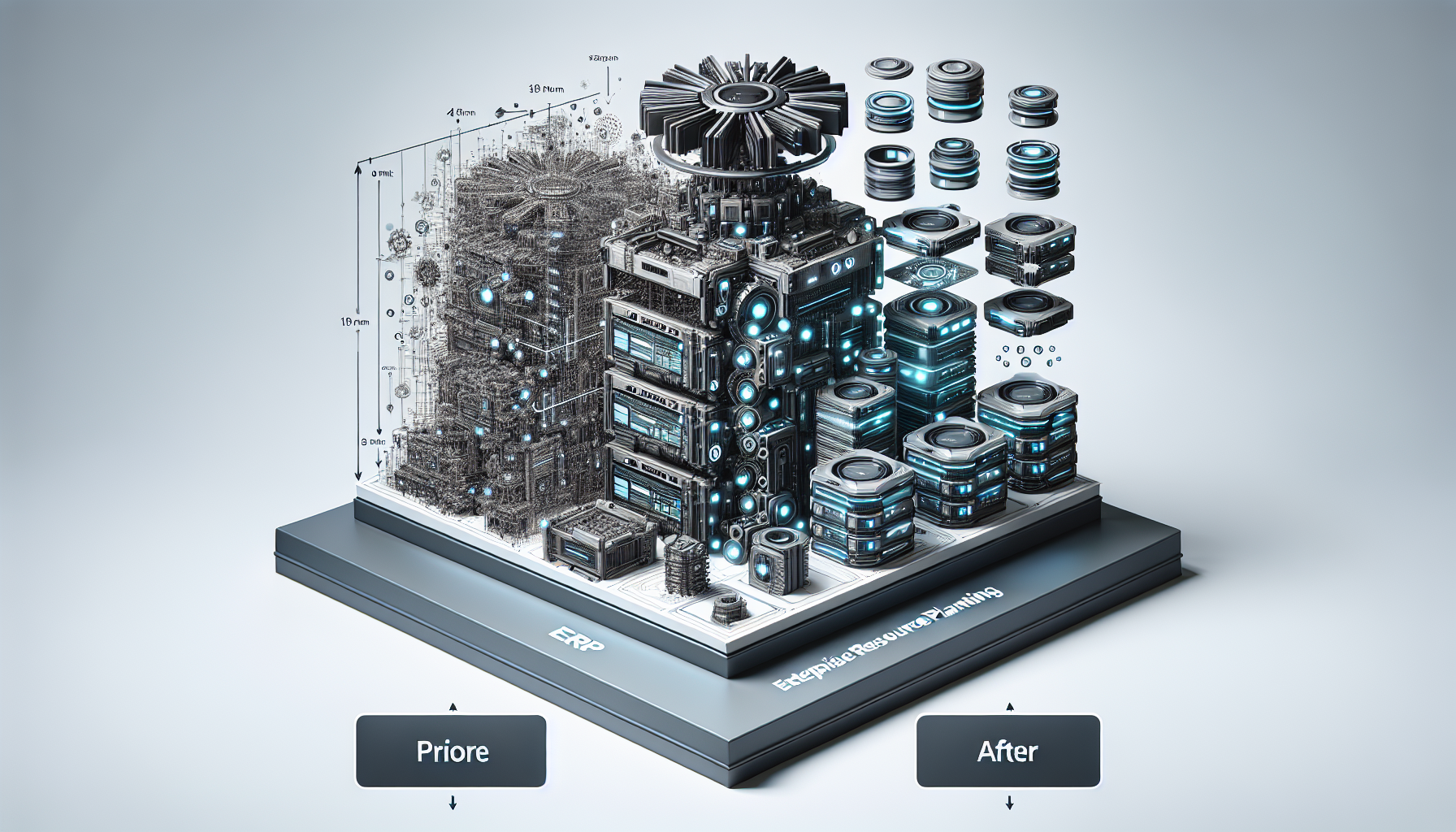Bapcor Optimizes ERP Systems, Reducing Total from 42 to 19
We independently review everything we recommend. When you buy through our links, we may earn a commission which is paid directly to our Australia-based writers, editors, and support staff. Thank you for your support!
Overview
- Bapcor reduces ERP systems from 42 to 19, aiming for 15 by FY2026
- Emphasizing gradual, cost-effective ERP consolidation across its divisions
- New ecommerce platform launched for Autobarn and Autopro; Midas to follow suit
- Single CRM system to enhance customer experience across multiple brands
- Strategic investments in AI and machine learning to boost inventory and staff performance
- Active ERP platforms include MomentumPro, Pronto Xi, and Marlin GTX

ERP Simplification Reduces Complexity Across Bapcor Group
Bapcor, Australia’s foremost provider of aftermarket automotive components, accessories, equipment, and services, is embarking on a comprehensive technological overhaul. The organization, which features well-known brands like Autobarn, Midas, and Autopro, has decreased its enterprise resource planning (ERP) systems from an overwhelming 42 to 19 by the close of FY2024. The intention is to further decrease this to 17 by FY2025 and 15 by FY2026.
During a recent strategic briefing, CEO and executive chair Angus McKay asserted that 15 ERP systems might still be excessive; however, the enterprise is adopting a systematic, logical strategy by aligning ERP systems with business units rather than pursuing extensive, high-cost transformations.
Economical Digital Approach
McKay highlighted that Bapcor would refrain from spending hundreds of millions on a sweeping ERP overhaul. Rather, the company is choosing to invest in best-in-class technologies to bolster operational efficiency. This modular and phased strategy enables Bapcor to minimize IT costs and enhance scalability while maintaining core business operations.
Currently, the systems in continuous use include MomentumPro, Pronto Xi, and Marlin GTX—solutions well-suited for the automotive industry. These platforms will remain in place to meet specific business requirements as the larger consolidation process progresses.
Integrated CRM and Ecommerce Revitalization
As part of Bapcor’s digital enhancement, the company is working towards the implementation of a unified customer relationship management (CRM) platform across all divisions. This initiative will facilitate the integration of customer data, streamline marketing and sales efforts, and provide a more cohesive customer journey.
The company initiated enhancements to its ecommerce offerings starting with Autobarn in November 2024. These updates are already operational across Autopro and will soon extend to Midas. Improvements encompass enhanced inventory visibility, better delivery options for large items, and an overall smoother shopping experience both online and in physical stores.
AI and Machine Learning to Propel Future Growth
Looking forward, Bapcor is investing in artificial intelligence (AI) and machine learning (ML) to enhance operational intelligence and workforce skills. The company’s “parts interpreters”—essential retail staff assisting customers—are anticipated to benefit from AI-driven knowledge management tools that improve their ability to efficiently recommend the correct products.
On the backend, AI and ML will assist in inventory management and forecasting through advanced sales and operational planning tools. These innovations aim to diminish stock shortages, optimize supply chain efficiency, and enhance customer satisfaction across Bapcor’s brands.
Conclusion
Bapcor’s strategic transition towards a reduced number of ERP systems, integrated CRM, ecommerce enhancements, and AI-driven operations illustrates a deliberate, future-oriented technology plan. Instead of opting for expensive redevelopment, the company is astutely investing in solutions that promote scalability, employee potential, and customer experiences. As a significant player in Australia’s automotive aftermarket, Bapcor’s digital evolution sets a notable benchmark for other multi-brand organizations facing similar challenges.
Q: What motivated Bapcor to cut down its ERP systems?
A:
The goal was to simplify system complexity, decrease IT expenses, and enhance efficiency across its various automotive brands. Integrating ERP systems ensures improved data cohesion and harmonized business processes.
Q: How many ERP systems does Bapcor intend to keep by 2026?
A:
Bapcor aims to reduce its ERP system total to 15 by the conclusion of fiscal year 2026, down from the initial count of 42.
Q: Which platforms are currently utilized by Bapcor?
A:
At present, the organization continues utilizing ERP systems like MomentumPro, Pronto Xi, and Marlin GTX, which are tailored for the automotive retail and distribution sectors.
Q: What importance does the new CRM system hold?
A:
Implementing a singular CRM system enables Bapcor to centralize customer interactions across its brands, enhance data-driven decision-making, and improve alignment in marketing and sales efforts.
Q: How is Bapcor enhancing its ecommerce platforms?
A:
The company has already revamped its Autobarn and Autopro ecommerce offerings, with Midas ready to follow. Upgrades feature improved inventory management, better delivery alternatives, and a more seamless user experience.
Q: What role will AI play in Bapcor’s operational future?
A:
AI will aid knowledge management for retail personnel, enhance customer support, and facilitate intelligent inventory oversight through machine learning-based predictive and planning tools.
Q: Is Bapcor making significant expenditures on digital transformation?
A:
No. CEO Angus McKay has explicitly mentioned that the company is steering clear of costly, sweeping ERP projects. Instead, it is embracing a modular strategy through investments in effective, reasonably priced digital tools.
Q: What impact will this transformation have on customers?
A:
Customers will gain faster service, improved product accessibility, and more versatile delivery and pick-up options, owing to enriched ecommerce platforms and AI-supported staff.
